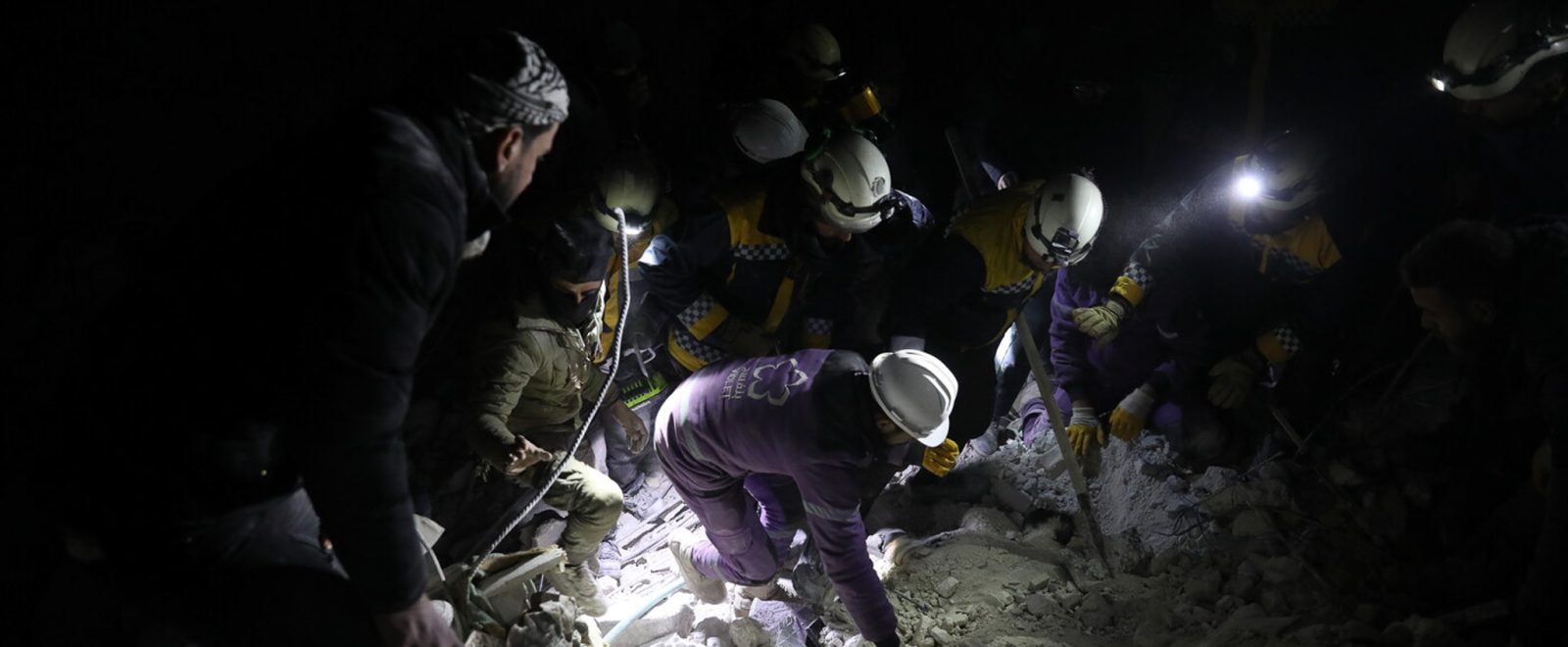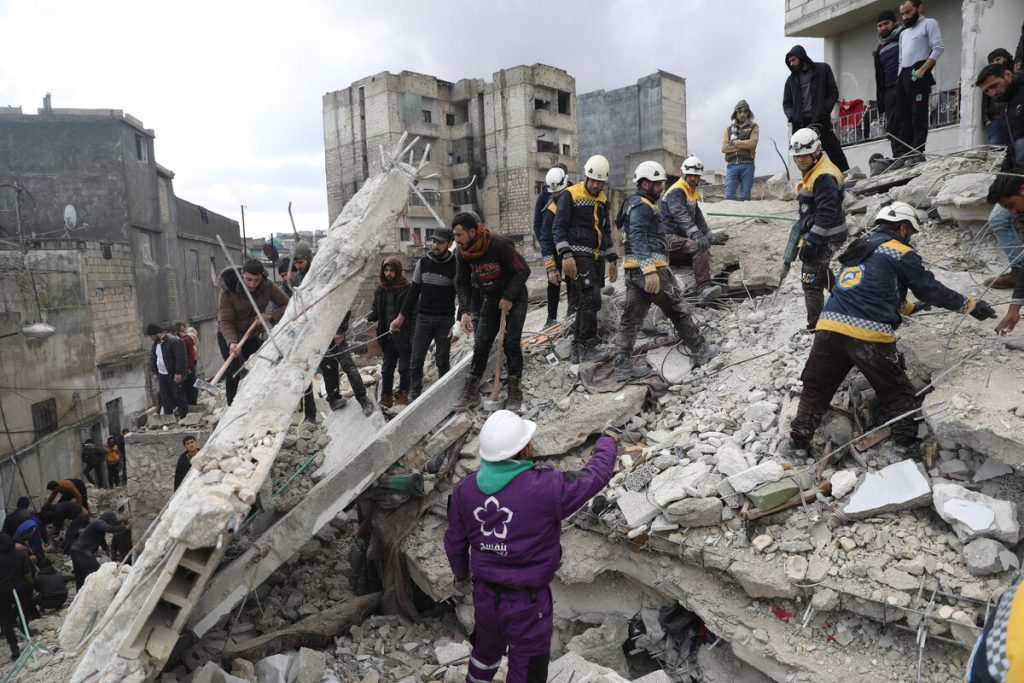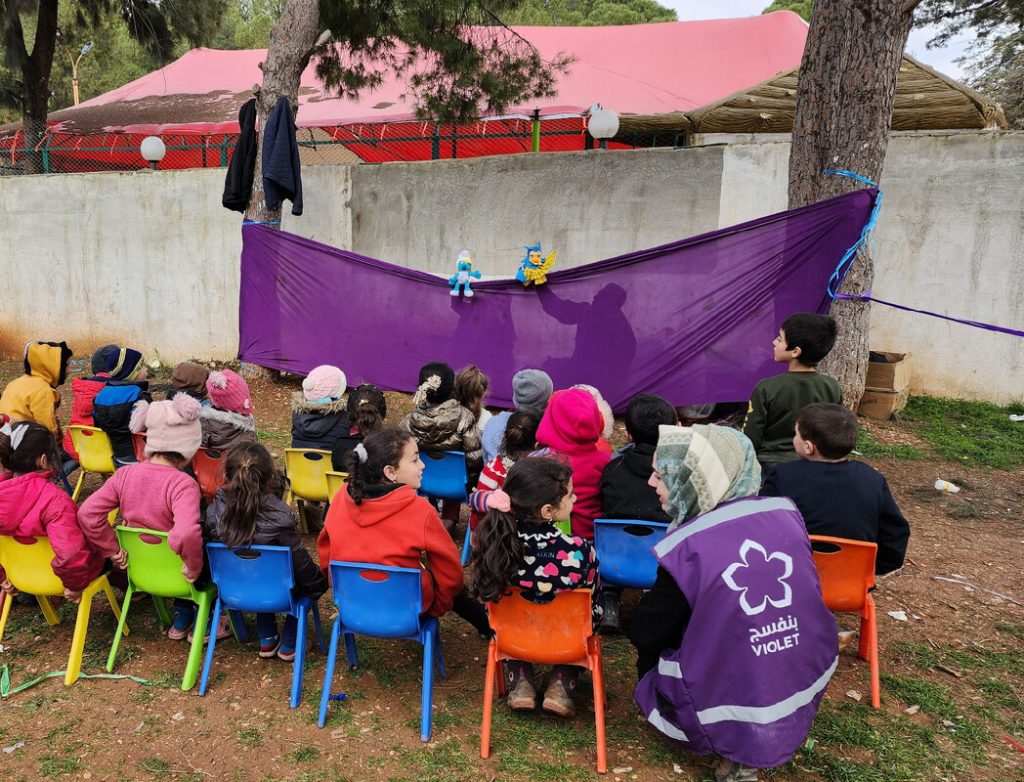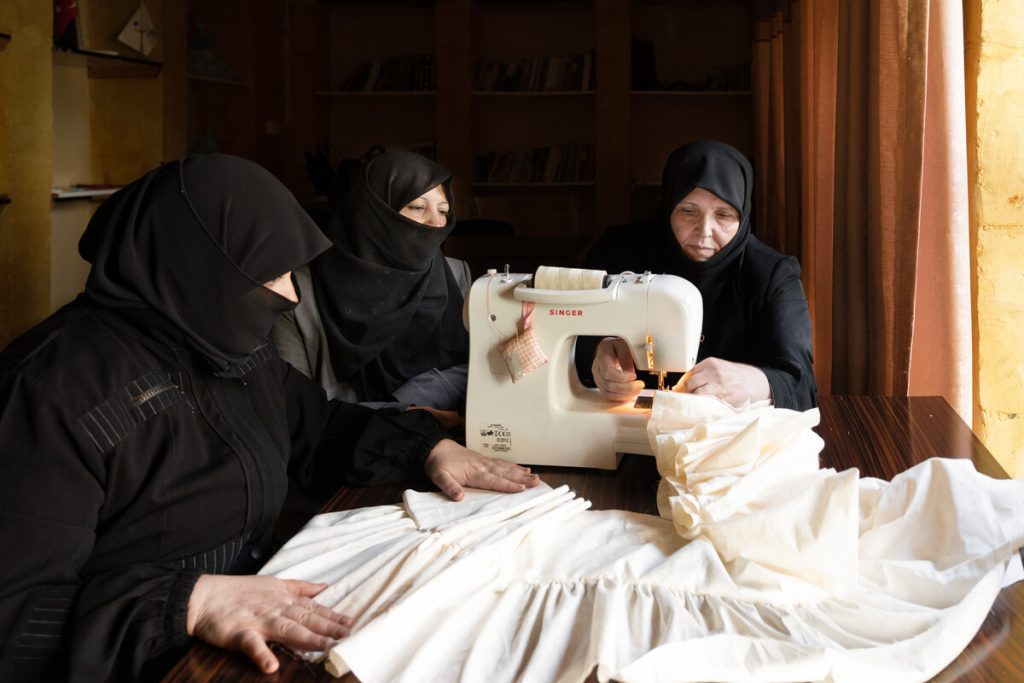
On February 6, 2023, a series of 7.8-magnitude earthquakes devastated Türkiye and Syria, killing over 56,000 people in the region’s worst quakes in over 20 years. The disaster struck as northwest Syria already faced an immense humanitarian crisis, with 4.1 million people relying on aid since the recent conflict in Syria began. Before the earthquake, 90% of the population in Northwest Syria depended on humanitarian assistance to meet their basic needs. The earthquakes’ devastation continues to affect thousands of families still struggling to recover.
In the immediate aftermath of the earthquakes, ActionAid launched an emergency response to meet the urgent needs of those affected. This included providing shelter, food, medical aid, warm clothing, heaters, and cash transfers. ActionAid’s efforts have so far assisted over 221,630 people, focusing on empowering women and young people to lead and take action.
Our approach to humanitarian aid is guided by our Human Rights Based Approach, which promotes the leadership, agency, and engagement of disadvantaged and marginalized communities at the center of the response, especially women and young people. This ensures inclusive participation that addresses the genuine needs of those affected by the crisis.

ActionAid partner, Violet, conducts rescue operations in Northwest Syria. Photo: Muhammad N. Haj Kadour/ActionAid
Through the emergency, ActionAid collaborated with longstanding local partners like the emergency response organization Violet. Our immediate response included search and rescue operations in the rubble of destroyed buildings and distributing warm clothing, blankets, and firewood to over 5,000 people. We also provided seven mobile ambulances equipped to deliver urgent medical care for 90 days at the start of the emergency.
Our long-term response has included counseling and organized events such as puppet shows and playtime for children in the region, many of whom had suffered severe trauma. We also established safe spaces for women and girls to address and prevent gender-based violence.
For women living in refugee camps in Türkiye and Syria, accessing urgent medical care, such as C-sections and treatment for premature labor, was nearly impossible. The biggest challenges facing medical facilities were the damaged infrastructure and a scarcity of medical staff to provide urgent care.
Alam Janbein, ActionAid’s Syria-Türkiye Humanitarian Response Lead, said:
“Pregnancy, childbirth, and childcare do not stop in a crisis. As we focus on recovery in Syria, services for women and children must be front and center of the international response, and their protection should be prioritized.”

ActionAid partner Violet putting on a puppet show at a shelter for earthquake-displaced children and widowed mothers. Photo: Muhammad N. Haj Kadour/ActionAid

People have received medical services through ActionAid-funded hospitals.

People have received WASH services (clean water, hygiene kits, and bathroom facilities).

Individuals have received protection services, such as psychosocial support, access to women-friendly spaces, and gender-based violence (GBV) training.

A group of friends making clothes together at Kareemat. Photo: Fabeha Monir/ActionAid
ActionAid has also partnered with Kareemat, a women’s shelter and community center that provides social, educational, and in-kind assistance to all women, especially to those who have fled Syria and have been subjected to injustice, exploitation, oppression, and violence. Kareemat also works with former female sex workers by offering them a space to learn vocational and language skills and spend time with other women.
Leveraging their pre-existing trust with the community, Kareemat swiftly transformed into a sanctuary for women after the earthquakes struck. Group psychological support, individual therapy, and longer-term skill-building initiatives, such as handcrafting, have empowered women to rebuild their lives and reclaim self-sufficiency.
Najlaa Alsheikh, founder of Karameet, said:
“Women carried the biggest burden [after the earthquake]. We were suffering from PTSD and were completely shaken, yet we still needed to care for our families…
Thankfully, my friends outside of Türkiye kept contacting me and giving me support…telling me to become strong again and get back on my feet. They reminded me of the people who count on me, so we regrouped and made a plan. We started receiving financial aid and we received aid to help with food and shelter…
When I see the success stories after every project, these stories humble me and make me proud at the same time. When I see women with disabilities, or women affected by war, when I see these women challenging their circumstances and learning, when these strong women are able to support their families, that motivates me to no end.”
As this ‘crisis within a crisis’ continues to develop, we need your help more than ever. Our response continues to rely on the courage and resilience of local NGOs and volunteer networks, led by women and young people, working in challenging conditions. Sign up for our email list to receive regular updates on how you can stay involved in the ongoing efforts to rebuild and support these communities.
Latest News on Türkiye-Syria Earthquake
Check out the latest press releases from ActionAid USA
Latest Stories and Insights on Türkiye-Syria Earthquake
Check out the latest stories from ActionAid USA
People in the regions impacted by the earthquake already lived in very vulnerable situations, having fled their homes in war-torn Syria. The devastation caused by this tragic disaster will mean they have experienced one disaster on top of another, leaving them in a compounded humanitarian crisis. We are uniquely placed, through our women- and young people-led human rights-based approach, to make a distinct contribution in the response to this emergency, prioritizing highly vulnerable groups, including refugees, female-headed households, and people with disabilities. Take action with us today!